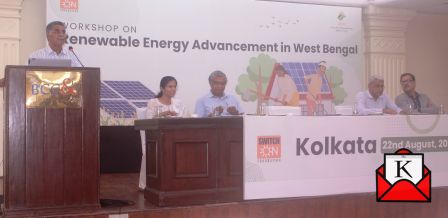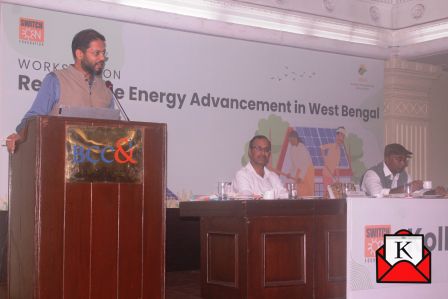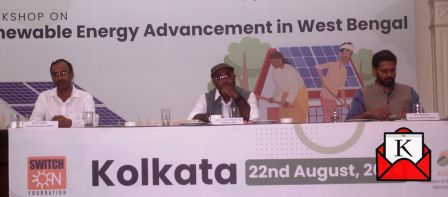New Technologies & Policies To Transform The Energy Landscape In Bengal


The Association of Renewable Energy Agencies of States (AREAS) and SwitchON Foundation jointly organized a workshop addressing the key advancements in renewable energy, with a focus on cutting-edge technologies, financing models, and policy frameworks that can catapult West Bengal to the forefront of sustainable energy development in India. This is a significant step towards the advancement of renewable energy in West Bengal.
It is essential that global emissions peak by 2025 and decline by 43% by 2030 to keep global warming to 1.5°C. According to the International Energy Agency (IEA), doubling the use of renewable energy by 2030 is necessary to meet this target. India has come a long way in the last ten years, growing its solar power capacity from 2.6 GW in 2014 to 87.2 GW at present, a 30-fold increase.
With the ultimate objective of reaching net-zero emissions by 2070, the nation has set lofty ambitions to reach 500 GW of renewable energy capacity and guarantee that 50% of its energy originates from renewables by 2030. This shift is being driven by important government initiatives like the PM Suryodaya Yojana, which seeks to build 1 crore solar rooftops totaling 11.08 GW, and the PM-KUSUM plan, which includes the deployment of 35 lakh solar pumps amounting to 30,800 MW. The ambitious policies and initiatives in India are driving a rapid expansion in the renewable energy sector.
The future of renewable energy in the state was discussed by a distinguished panel of dignitaries, legislators, and business executives throughout the session. The talks focused on building cooperation between banks, government agencies, renewable energy firms, and service providers to establish a strong ecosystem that promotes the expansion of renewable energy.

The event was attended by Shri J K Jethani, Executive Director, AREAS- Ministry of New and Renewable Energy, GoI, Shri. S. Suresh Kumar, IAS, Chairman, Damodar Valley Corporation, Shri Sujan Sarkar MD West Bengal, State Cooperative Bank, Shri. Sanjeev Jain, Advisor, SwitchON Foundation- Learnings from State Policies and Incentives for Renewable Energy Deployment, Shri. Manoj Mahata, Technical Expert, GIZ – Strategic (sectoral) roadmap for RE/DRE deployment and role of multi-sectoral planning/design/implementation, Smt. Amrita Ganguly, Executive Director, Deloitte – Policy Frameworks for Accelerating Renewable Energy Deployment and Smt. Priyadarshini Karve, Chief Executive Officer, Clean Energy Access Network (CLEAN).
The discussion focused on cutting-edge technology, financial strategies, legislative frameworks, and cooperative initiatives to highlight significant developments in the renewable energy industry. The potential of key initiatives to advance renewable energy to change West Bengal’s energy landscape was highlighted. With talks on creative business and financial models that can hasten the adoption of clean energy, the significance of financial support in scaling up renewable energy projects was emphasized. The necessity for strong legislative frameworks and financial incentives to draw in capital and promote the state’s widespread use of renewable energy was also discussed throughout the session. The event also emphasized the value of multi-sectoral cooperation and the necessity of a strategic roadmap for the deployment of renewable energy through thorough planning and execution across several sectors.
At the end of the event, all stakeholders were urged to collaborate to establish West Bengal as a leader in renewable energy. By utilizing cutting-edge technologies, providing financing, and putting supportive policies in place, West Bengal can meet its aims for sustainable energy and make a major contribution to India’s renewable energy targets.
Priyanka Dutta
